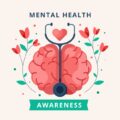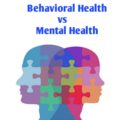
According to the World health organization Mental health is an integral and essential component of health. The WHO constitution states: “Health is a state of complete physical, mental and social well-being and not merely the absence of disease or infirmity.” An important implication of this definition is that mental health is more than just the absence of mental disorders or disabilities.
Mental health is a state of well-being in which an individual realizes his or her own abilities, can cope with the normal stresses of life, can work productively, and is able to make a contribution to his or her community.
Why Is Mental Health Important For Students
Mental health is fundamental to our collective and individual ability as humans to think, emote, interact with each other, earn a living, and enjoy life. On this basis, the promotion, protection, and restoration of mental health can be regarded as a vital concern of individuals, communities, and societies throughout the world.
In recent times experts and researchers have used terms like “epidemic” and “crisis” to characterize the mental health challenges currently facing students.
Statistics back up these claims. According to 2018 and 2019 student surveys from the American College Health Association (ACHA), about 60% of respondents felt “overwhelming” anxiety, while 40% experienced depression so severe they had difficulty functioning. A 2019 Pennsylvania State University study noted that demand for campus mental health services spiked by 30-40% during a period that saw only a 5% increase in enrollment.
Mood disturbances represent only some of the prevalent mental health issues experienced by college students. Others include serious problems like suicide, eating disorders, and addiction. Mental health professionals stress the importance of talking about such issues, but students tend to consider these stresses a normal part of college life. In other cases, they may lack the time, energy, will, and/or money to seek the support they need.
ACHA’s 2018 survey indicated that 40% of American college students experienced at least one major depressive episode that year. Referencing data from two comprehensive surveys, a Reuters article published in August 2019 reported that severe depression rates among U.S. college students doubled from 2007-2018.
Research shows that high levels of mental health are associated with increased learning, creativity, and productivity, more pro-social behavior and positive social relationships, and with improved physical health and life expectancy.
Mental health is also instrumental in allowing students to accept negative feedback with a positive mindset. Poor mental health may lead to the student being skeptical about understanding a different perspective or interpreting criticism. This type of individual is generally protective and defensive of his thoughts and does not take opinions from a third party easily.
Positive mental health focuses on developing environments where you can thrive and reach your optimal potential at work, study, and in life. At times, we all experience personal difficulties that may cause disruption and confusion in our lives. Studying usually involves a significant commitment of time and effort and requires a disciplined routine in order to achieve academic success, which can place significant stress on mental health. It’s important that, in times of high stress, we have strategies in place to protect our mental health. READ: How to Promote and Protect Mental health





